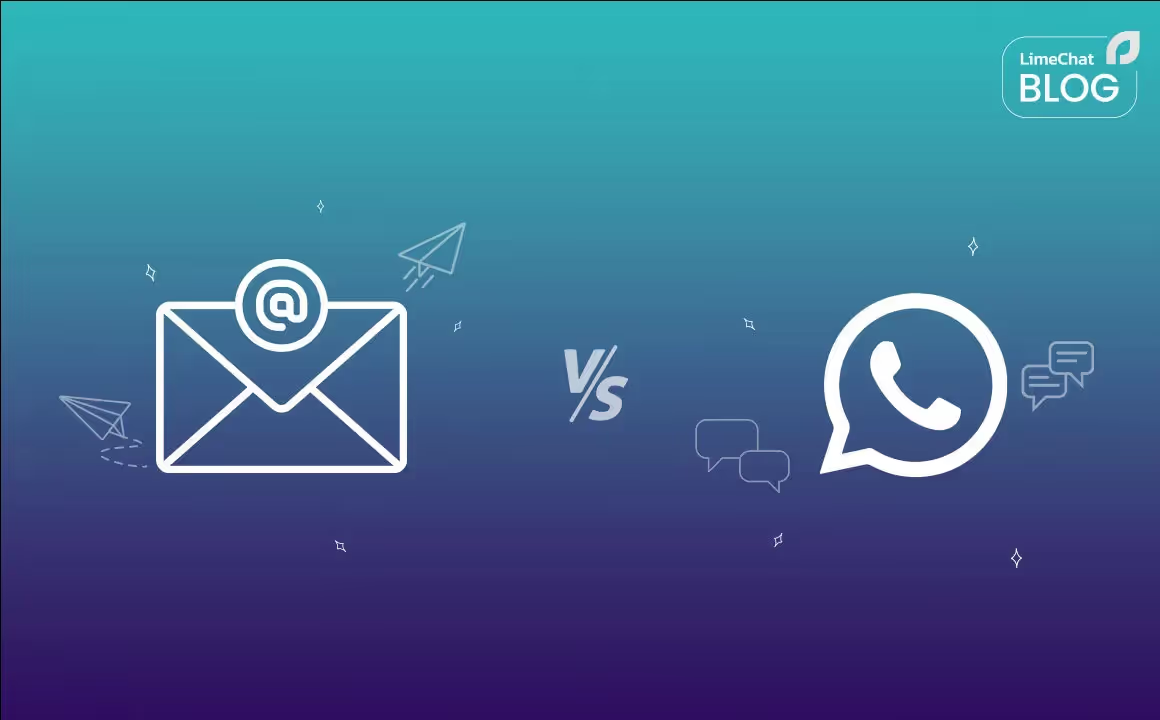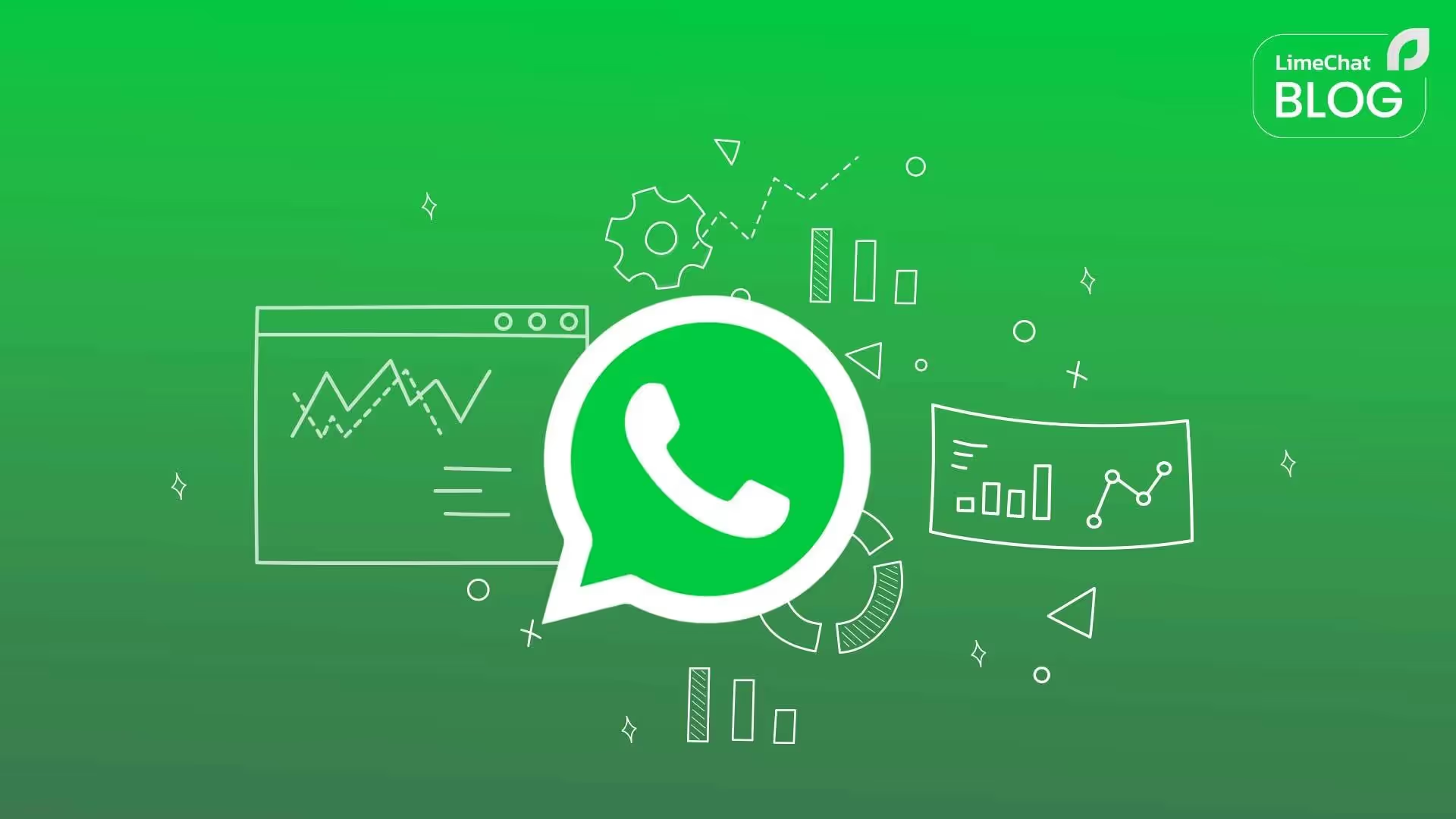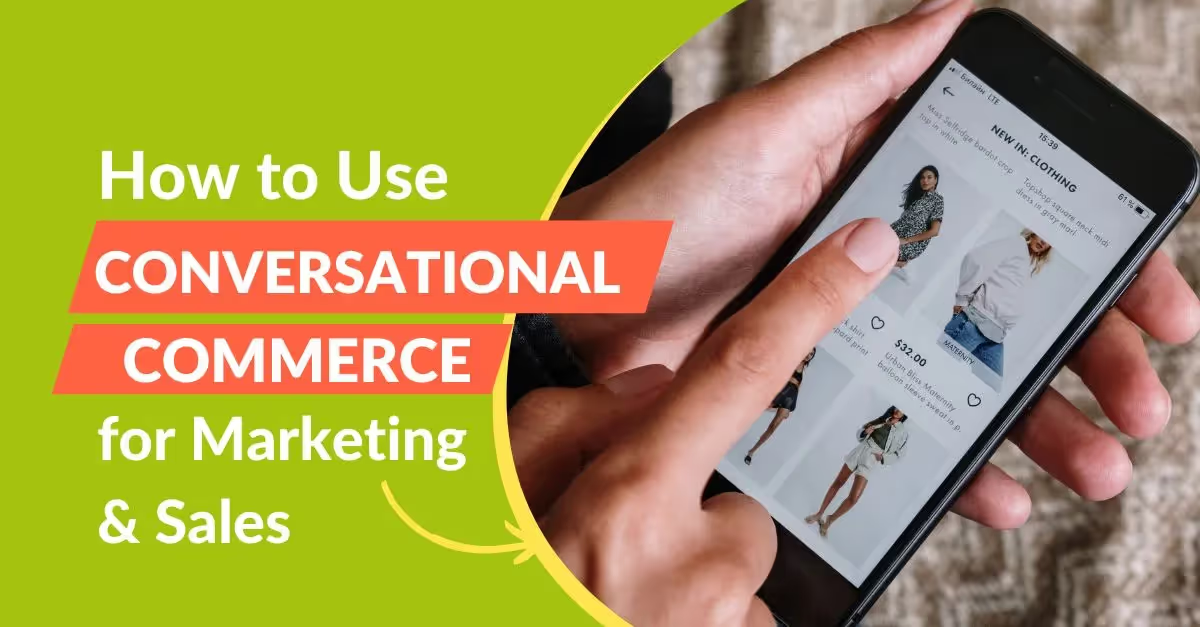WhatsApp marketing vs email marketing: What do eCommerce businesses need?

Channel comparison for eCommerce businesses – WhatsApp marketing vs Email marketing.
Email marketing has been around for decades, and it’s still one of the most promising channels for eCommerce businesses to grow their brand and generate revenue. It’s cheap, easy, and it works—but there’s a new contender on the scene: WhatsApp.
Whatsapp has recently stepped into the mix, promising brands and marketers alike an alternative to email marketing that’s more engaging than ever before. But with so many options out there, marketers are torn between which channel is best suited for their business goals.
And that’s where this article comes in! We’ll dive into how both channels work, their strengths and weaknesses, and you’ll learn how to use them together to get the most out of your marketing strategy.
We’ll look at how these powerful channels are used to create a comprehensive marketing strategy and how you can use them to reach your target audience more effectively. We’ll also discuss the pros and cons of each channel, so you can make an informed decision on which one is best for your business.
WhatsApp marketing vs Email Marketing: A detailed comparison
What is email marketing and why is it still important?
Email marketing is the process of sending promotional or informational messages to a large number of recipients via email. It is a cost-effective way for businesses to reach and engage with their target audience.
Despite the rise of other digital marketing channels, email marketing remains a powerful tool for businesses. According to a study by Statista, the number of email users worldwide is projected to reach 4.3 billion by 2023.
Additionally, a survey by Litmus found that for every $1 spent on email marketing, the average return on investment (ROI) is $38. According to the Direct Marketing Association, email marketing has an ROI of 122%, which is four times higher than other types of digital marketing.
Email marketing has a lower cost-per-acquisition rate as compared to other marketing channels and provides a high return on investment. Email marketing also offers high levels of personalization, allowing businesses to tailor their message to their target audience.
Furthermore, marketers can create automated campaigns, providing customers with the most relevant content and offers in a timely manner leading to conversions that are precious to any business! This can lead to higher open and click-through rates, ultimately driving more conversions.
Moreover, email marketing can be easily integrated with other digital channels, such as social media and eCommerce platforms, to create a cohesive and effective marketing strategy.
What is WhatsApp Marketing and why is It still Important?
WhatsApp marketing is the use of the WhatsApp messaging app to promote products and services. It involves sending messages to customers, prospects, and leads with the aim of generating brand awareness and sales.
Today, with more than 2 billion users worldwide, WhatsApp has become a powerful tool for marketers and is a great way to reach out to customers, build relationships, and drive conversions. It allows them to reach a large audience quickly and easily and in a cost-effective manner as it is free to use.
WhatsApp marketing is gaining prominence owing to the fact that the open rate for WhatsApp messages is exceptionally high. This means that when businesses send promotional messages to their customers, they are more likely to be seen and read. WhatsApp Business API also offers a range of features, such as broadcast messages, automations, FAQs and chatbots, which can be used to increase engagement and sales on the messaging platform.
WhatsApp Marketing vs Email Marketing: The Striking Commonalities
Email and Whatsapp marketing are two popular channels used by businesses to communicate with their customers. Both are direct and personalized ways to reach customers, so they have many similarities.
Here are some key similarities between email and WhatsApp marketing:
1. One-to-one communication
Both email and WhatsApp marketing provide a one-to-one direct channel for businesses to communicate with their customers. This enables businesses to send highly personalised messages to customers, leading to better engagement and conversion rates.
2. Direct reach to customers’ inboxes
Both email and WhatsApp messages are sent directly to the inbox of the consumer. This ensures that the customer receives the message in a timely manner and increases the chances of the message being seen and acted upon.
3. Opt-in requirement for customers
Customers need to opt-in for businesses to send messages via email and WhatsApp. This ensures that customers only receive messages they are interested in, and reduces the chances of the message being marked as spam.
4. Data collection
Both email and WhatsApp allow businesses to collect data about customers’ behaviour and preferences. This data can be used to understand the customer better and tailor the messages accordingly, leading to more personalised and effective campaigns.
5. Automation of messages
Both email and WhatsApp allow businesses to set up automated messages. This makes it easier for businesses to send timely and relevant messages to their customers, saving time and resources for the business.
6. Contact Segmentation
Both channels have the ability to segment contacts, which allows businesses to send messages to specific customers or potential customers based on certain criteria, such as demographics, behaviour, or purchase history. This enables more targeted and effective marketing campaigns
WhatsApp Marketing vs Email Marketing: The 9 Compelling Contrasts
At the end of the day, WhatsApp and email marketing are two distinct marketing channels. While WhatsApp provides an instant, direct connection with customers, email is a more formal and long-term way to reach target audiences.
Understanding the differences between these two methods is critical for marketers, as it enables them to choose the best channels for their messages.
Here are the ten most compelling contrasts between the two channels that brands must be aware of before building their next marketing strategy:
1. WhatsApp is the clear winner in terms of interactivity
Email is a traditional marketing channel where marketers can send broad messages to their customers. WhatsApp, however, is more interactive and personalised. Marketers can use it to send messages directly to customers, initiate conversations, and build relationships with them. WhatsApp also allows marketers to send multimedia content, such as images and videos, making it a more engaging platform for customers.
2. The email has spam filters, but WhatsApp doesn’t
The email has an inbuilt spam filter, reducing the risk of reaching out to the wrong audience. But conversely, Whatsapp does not have any spam filter and marketers need to be careful about the target audience, e.g. sending out promotional messages to all contacts may not be the right approach every time. This can significantly impact brands as it can lead to a negative reputation.
3. Your customers undoubtedly access WhatsApp way more – every day
Email is a great marketing channel for marketers as it is easy to reach a large customer base with a single message and can be tracked for effectiveness. However, Whatsapp is becoming increasingly popular and is being accessed more throughout the day as people use it to stay in touch with friends and family.
According to a study by eMarketer, adults in the US will spend an average of 2 hours and 22 minutes per day in 2022 on messaging apps such as Whatsapp, compared to JUST 25 minutes on email.
4. WhatsApp has a way higher open rate
The email has a much lower open rate, as people need to log into their inboxes to check for new emails. On the other hand, WhatsApp has a much higher open rate, as it sends out an alert when a new message is received. This alert is hard to miss, making it more likely that people will open new messages.
Moreover, since WhatsApp is often used on mobile devices, people are more likely to see notifications in a timely manner, increasing its open rate and practically determining any marketing campaign’s success!
5. Customers can interact with your business in real-time on WhatsApp
While email is an effective way to communicate one-way messages to customers, WhatsApp offers the potential for two-way conversations. This allows brands to engage with customers in real time, collect feedback, and adjust their messaging accordingly. This can lead to higher engagement rates and better customer retention and conversion results.
6. Direct add-to-cart action is possible on WhatsApp – i.e lesser drop-offs
WhatsApp is unique in that customers can add items to their cart directly from the chat window, making it more convenient for customers to complete a purchase. Businesses can also get paid for their orders via UPI on chat without having to direct consumers to a website.
On the other hand, when customers see a campaign ad in an email, they have to go to the website to add the item to their cart. This leads to higher drop-offs as customers are more likely to abandon their purchase due to the extra steps needed to complete the transaction.
7. WhatsApp offers a 24-hours conversation window & at no additional cost
Marketing on WhatsApp does not cost a dime extra! A marketing sequence is nothing but a series of automated messages sent to customers over a period of time. Businesses typically need to pay for email marketing services to send out these marketing sequences and the associated costs, such as templates and design.
In contrast, WhatsApp offers a more cost-optimised way of marketing as businesses don’t have to pay extra for sending out marketing sequences through WhatsApp. Additionally, WhatsApp offers a 24-hour conversation window, allowing businesses to engage with customers in real time.
8. The WhatsApp world isn’t overcrowded yet
One of the key advantages of WhatsApp for marketing is that it is far less crowded compared to email.
Despite a number of businesses using it now, it still is far from the noise of email, which is often used for work and all promotional emails get bulk-marked to spam. Hence, your marketing campaigns on WhatsApp are less likely to be lost without them being given at least a glance.
9. Speed of Communication is much higher in Whatsapp
When it comes to speed, WhatsApp is a faster channel as it allows messages to be sent instantly with no delays. This makes it a great tool for marketers to reach out to their target audience quickly. On the other hand, emails take more time to be delivered and read. Thus, it does not provide the same level of immediacy as WhatsApp does.
However, emails are still a relevant channel for marketers as it allows for more detailed communication with a larger character limit. Furthermore, emails also allow for more control over the content, including customising the design of the message. This allows marketers to create a more personalised message for their target audience.
10. Product discovery is easier on WhatsApp
On emails, a business typically focuses on promoting the products, collections, deals and discounts they want to bring attention to. But on WhatsApp, you can personalise the products you display to consumers using advanced workflows with solutions like LimeChat.
For example, you can ask for the type of deals they are looking for and then suggest products from a specific collection instead of making them browse through a vast catalog of thousands of products.
Here is a quick visual summary of WhatsApp marketing vs Email marketing:
FeatureEmail marketingWhatsApp marketingInteractivity levelLow to mediumVery highSpam filtersAvailableNot availableFrequency of useLess, more for professional purposesVery high, used throughout the day for keeping in touch with friends and familyOpen rate20%90%Two-way interactionNot possiblePossibleShare of voiceLesser, large no. of promotional emails go straight to spam foldersHigher, less crowdedCTR2-4%40-60%Speed of conversionsSlower since the reader has to go to the website to complete the purchaseDirect add-to-cart possible, higher speed of conversionProduct discoveryGeneric and more focused on what the business wants to promotePersonalized and can be tailored as per consumer inputs using chatbots
Future of Whatsapp Marketing vs. email marketing: What lies ahead?
When it comes to choosing between WhatsApp and email marketing, it’s important to understand that each has its own strengths and weaknesses. And depending on the nature of your business and your target audience, one may be a better fit than the other.
Let’s start with email marketing. This is a great option for businesses selling high-ticket items or services requiring multiple stakeholders to decide. Email is a more formal and professional channel, which allows you to provide detailed information about your products or services, and even attach documents and images. Plus, with email marketing, you can segment your audience and create targeted campaigns, which can be super helpful when trying to reach decision-makers.
On the other hand, WhatsApp may be a better fit for businesses in the fast-moving consumer goods (FMCG) industry or for businesses offering low-ticket items. The reason is, WhatsApp is a more personal and intimate channel that allows you to have direct and real-time conversations with your customers. This can be great for building relationships with your customers and even offering personalised deals or discounts.
Whatsapp Marketing vs. Email-marketing: Final Verdict!
Both WhatsApp and emails are important channels for marketers, each offering its own strengths and weaknesses. Depending on the message type and target audience, marketers should consider which channel would be more suitable for their marketing efforts. Marketers should ideally use both platforms in their marketing strategies to tap into the best of both.
But what if you don’t have the time or resources to manage two different channels? That’s where LimeChat comes in!
LimeChat makes it easy for marketers to create custom flows, manage campaigns, and deliver personalised experiences for their online businesses. With our AI-powered system, you can easily create powerful campaigns that drive customer engagement and loyalty—all with minimal effort on your part.
Want to learn more about WhatsApp marketing vs Email marketing?
Click here to book a free demo now!
Transform your marketing and support today






